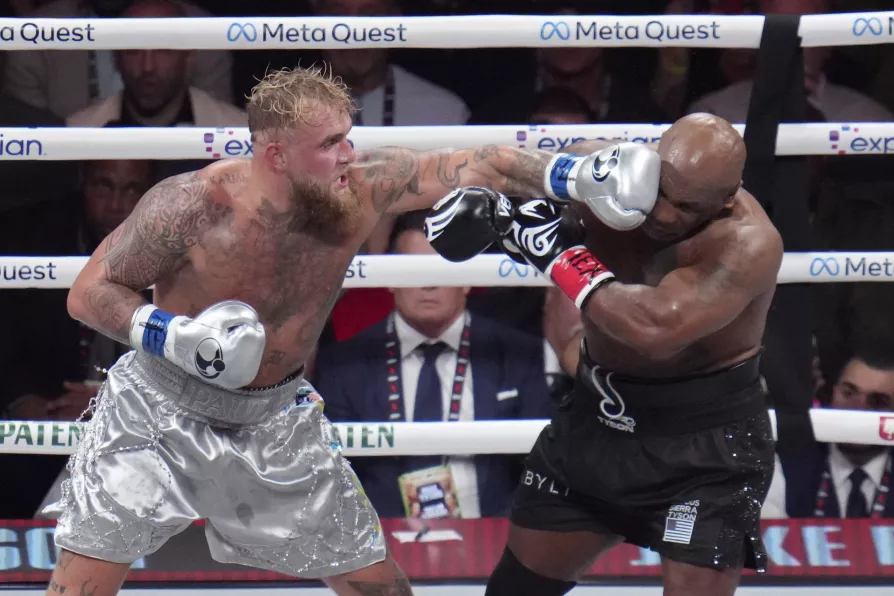
 Jake Paul lands a left to Mike Tyson during their heavyweight boxing match, Friday, Nov. 15, 2024, in Arlington, Texas
Jake Paul lands a left to Mike Tyson during their heavyweight boxing match, Friday, Nov. 15, 2024, in Arlington, Texas
IN HIS classic 1967 work, The Society of the Spectacle, French Marxist theorist, Guy Debord, has this to say: “The spectacle presents itself as a vast inaccessible reality that can never be questioned. Its sole message is: What appears is good; what is good appears.”
Watching the spectacle of a 58-year-old Mike Tyson’s attempt last weekend to convince himself and the world that he is still someone to be taken seriously in a boxing ring was more than painful — it was dreadful.
There he was, in front of 60,000 spectators (mugs) at the Dallas Cowboys’ Stadium in Texas — laying waste to not only his legacy, but more importantly his dignity. That his opponent in this spectacle of cringe was 27-year-old social media influencer, Jake Paul, merely heightened the sadness involved in what was a slow-motion car crash.

















